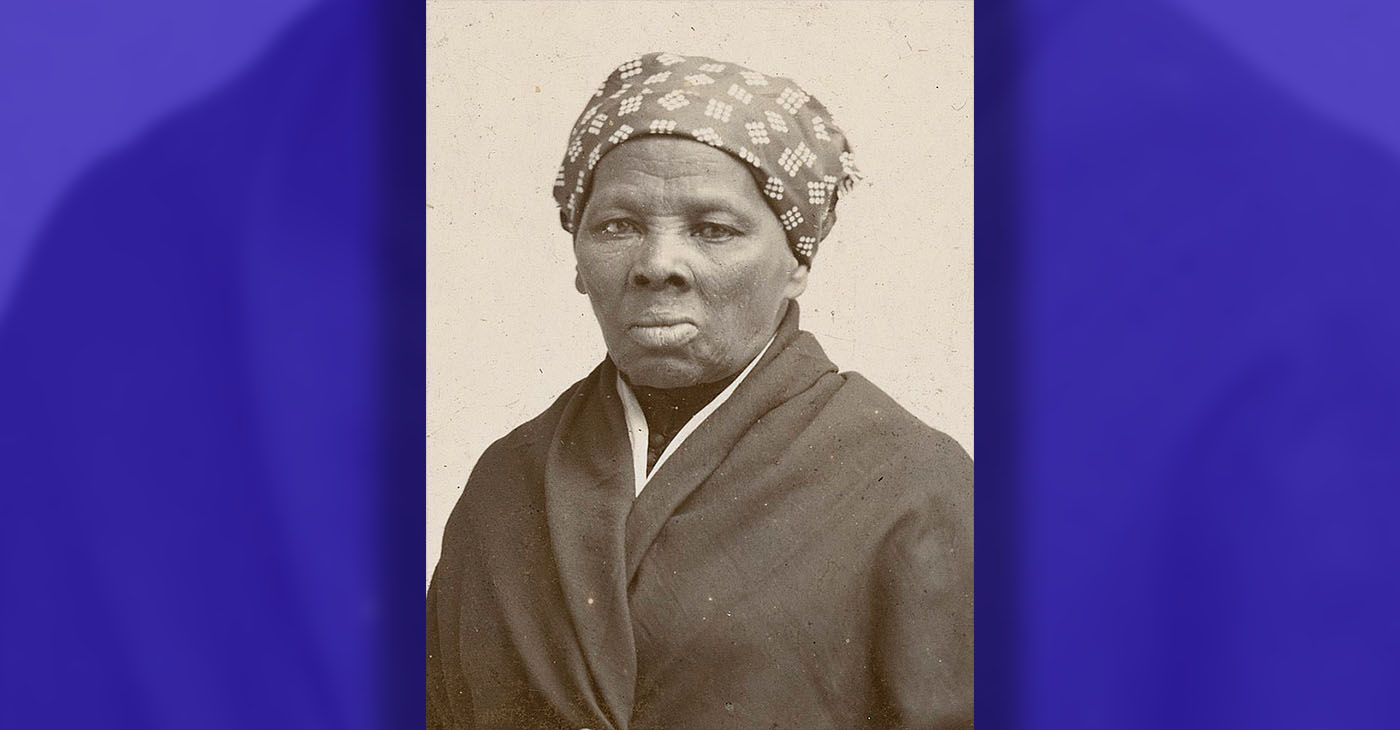Community
OP-ED: BART Hires Georgia Firm for Disparity Study, Ignores Qualified Cheaper Local Bidder
By Barbara J. Thomson
Despite BART board policy to contract with small local businesses, the Board of Directors at their April 9 meeting voted unanimously to award a contract to study discrimination in contracting to a Georgia firm – Miller3 – with limited experience in the field.
The lowest bidder—a nationally recognized Oakland firm located in BART’s service area for more than 30 years—was passed over for the contract to conduct the study to investigate BART’s contracting practices.
Local business leaders are questioning how the contractor selection to conduct a disparity study that produced such unfair results could have been impartial. They are calling for transparency and disclosure of the selection process.
Business leaders want an explanation of how the proposals were evaluated and how BART’s Office of Civil Rights could rank the Georgia firm number one, and an international firm that has never performed a disparity study was ranked number two.
The Oakland firm— Mason Tillman Associates, Ltd.– which has completed more than 130 legally unchallenged studies, including the current unchallenged BART study—was only ranked number three.
The BART Office of Civil Rights’ report to the board stated, “[A]t the conclusion of the evaluation process, staff conducted a best value analysis and determined that Miller3 represented the best value to the district.”
The Georgia firm’s proposed bid was over $100,000 more than the Oakland firm—a California certified business that has performed more than 100 disparity studies for large clients such New York City, New York State, Texas, Minnesota, Oregon, Washington, and the Los Angeles Metropolitan Transportation Authority.
BART’s 2007 Disparity Study was performed by Mason Tillman. Leaders note that it is difficult to understand how BART officials could recommend and directors vote to approve a contract that will cost the public an extra $100,000.
They also question how this decision can be justified as “the best value” for Bay Area residents and riders.
Wayne T. Wong, Department Manager for BART’s Office of Civil Rights testified that the staff’s recommendation was proper because BART had budgeted an estimated cost of over $1 million for the project, and the Georgia firm’s bid came in at $668,050.
Staff analyses show that the cost to taxpayers and riders could have been reduced by almost $100,000 had BART selected a local small business with a national reputation that hires local residents and pays local taxes.
BART’s willingness to pay the additional amount is noteworthy at a time when every penny should be scrutinized because BART intends to go again to the voters for a bond measure this time to subsidize a $9.6 billion shortfall found by the State Auditor.
In these economic times, socially responsible agencies are mindful that local hiring is important to all district residents.
The bid proposal also required the contractor to “[M]aintain, or be able to maintain, an office location in California within 100 miles of the District’s Headquarters” in downtown Oakland.
According to the Office of Civil Rights Manager Wong, the Georgia firm plans to “rent or lease space from one of its sub-consultants in Vallejo or Novato. Neither city is in a county with BART district tax rates.”
The nationally respected Oakland disparity study consultant that BART did not select is headquartered across the street from BART headquarters, where it employs 20 staff.
The firm hires locally and for 30 years has supported the local economy, and pays payroll, sales, and BART district taxes.
The Oakland business is not only a local company, but it is a good corporate citizen that hires Oakland minority high school student interns, mentors young professionals, and supports Oakland nonprofit organizations.
In passing over the Oakland firm, BART failed to comply with its own policy, and the Office of Civil Rights has failed to comport with its mission to ensure an equitable contracting process for local, small, and minority/woman-owned businesses.
In voting to select the Georgia firm for this contract, BART Directors raise suspicion about their fiduciary responsibility.
For more information, watch BART’s April 9 board meeting, Item III.B, at www.bart.gov/about/bod/multimedia.
#NNPA BlackPress
Harriet Tubman Scrubbed; DEI Dismantled
A photograph of Harriet Tubman has been removed from a National Park Service webpage about the Underground Railroad.

By Stacy M. Brown
BlackPressUSA.com Senior National Correspondent
A photograph of Harriet Tubman has been removed from a National Park Service webpage about the Underground Railroad. Previously, the page opened with a photo of Tubman and a description that acknowledged slavery and the efforts of enslaved African Americans to escape bondage. That language is now gone. In its place are images of postage stamps and a reworded introduction that refers to the Underground Railroad as “one of the most significant expressions of the American civil rights movement” that “bridged the divides of race.” The updated version does not mention slavery. The change follows an executive order signed by President Donald Trump last month directing the Smithsonian Institution to eliminate “divisive narratives.” A review by The Washington Post found that since Trump’s return to office, dozens of webpages across the National Park Service have been edited to soften or eliminate references to slavery, racial injustice, and the historical struggles of African Americans.
On the website for the Stone National Historic Site in Maryland, mentions of Declaration of Independence signer Thomas Stone owning enslaved people were removed. Elsewhere, references to “enslaved African Americans” were changed to “enslaved workers.” A page exploring Benjamin Franklin’s views on slavery and his slave ownership was taken offline. The Defense Department also removed several webpages related to diversity and minority contributions to the U.S. military, including a tribute to Jackie Robinson’s Army service and content honoring the Tuskegee Airmen, the Navajo Code Talkers, and the Marines at Iwo Jima. Officials later said some content would be republished after public outcry. Nearly 400 books were removed from the library at the U.S. Naval Academy. The list includes Maya Angelou’s I Know Why the Caged Bird Sings, Memorializing the Holocaust, Half American, and Pursuing Trayvon Martin. Officials cited Defense Secretary Pete Hegseth’s directive to eliminate books that promote diversity, equity, and inclusion.
Private companies contracting with the federal government have begun rolling back language diversity and initiatives in response to federal pressure. UnitedHealth Group removed DEI language from its website. Goldman Sachs dropped its diversity requirement for companies it takes public and revised annual filings to reflect “developments in the law.” Bank of America replaced the term “diversity” with “talent” and “opportunity.” Deloitte instructed U.S.-based employees working with federal clients to remove pronouns from email signatures. Coca-Cola, PepsiCo, Disney, Paramount, JPMorgan Chase, Victoria’s Secret, and others have renamed or eliminated DEI programs. Some, like Paramount, cited the need to comply with Trump’s executive orders.
Target has faced financial and reputational fallout following its reversal of DEI commitments. The company has lost over $12.4 billion in revenue and faces multiple lawsuits related to its shifting policies. Rev. Jamal Bryant launched a national “Target Fast,” urging community mobilization. Separately, the NAACP and the National Newspaper Publishers Association (NNPA) initiated public education and selective buying campaigns to increase pressure on the retail giant.
“Black consumers helped build Target into a retail giant, and now they are making their voices heard,” said Dr. Benjamin F. Chavis Jr., president and CEO of the NNPA. “If corporations believe they can roll back diversity commitments without consequence, they are mistaken.”
#NNPA BlackPress
What Parents Think about Childcare Right Now
BLACKPRESSUSA NEWSWIRE — Children’s earliest years are a critical period when the foundation is built for lifelong physical health and emotional well-being

By: RAPID, Stanford Center on Early Childhood
The RAPID Survey Project, based in the Stanford Center on Early Childhood, is a program of ongoing national and place-based surveys designed to gather essential information on the needs, health-promoting behaviors, and well-being of young children and their caregivers. Our objective is to make timely and actionable data on the experiences of parents, caregivers, and young children available in an ongoing manner to support parent- and data-informed decision-making. Children’s earliest years are a critical period when the foundation is built for lifelong physical health and emotional well-being. Research shows that consistent, responsive caregiving is conducive to healthy development during these early years. We asked parents of infants and toddlers (birth to age 3) to tell us about their childcare experiences and preferences. Using responses from parents of infants or toddlers who participated in national RAPID household surveys in January 2024 and November 2024, we aim to understand the types of childcare that families with infants and toddlers use and what is most important to parents when selecting child care.
Family, friends, and neighbor (FFN) care is the most common childcare choice for families with infants and toddlers.
We asked parents of infants and toddlers questions about how much childcare they use, as well as their experiences using center-based care, home-based care, and both paid and unpaid family, friend, and neighbor (FFN) care. More than two in three (68%) parents of infants and toddlers use childcare for five hours or more per week. Among these families, and consistent with other national data, FFN care makes up the largest share of providers of infants and toddlers.
Responses from the survey show that, on a weekly basis:
—32% of parents use center-based care
—26% of parents use unpaid FFN care
—13% of parents use paid FFN care
—12% of parents use home-based care in the childcare provider’s residence
“Sometimes it is difficult to find relatives/friends who I trust and are available as sometimes their plans change.” Parent in Wisconsin
“I’m relying on family and things arise that make them unable to help. I have looked into center-based care and considered going back to work, but it will cost me more for childcare than I can make in income to pay for it.” Parent in Ohio
“I use babysitters, mostly teenagers, so their schedules are sometimes unreliable. They do their best, but they have other commitments, too. They also can’t always work during the day, which is when I need them.” Parent in Texas
Reliable access to childcare is a particular concern for many parents of infants and toddlers.
The predictable schedules and routines that are associated with stable access to childcare support the positive well-being and development of children, families, and caregivers. In their responses to open-ended questions, parents of infants and toddlers spoke about the different challenges they experience securing childcare, including issues with affordability, hours, location, and trust in their provider. As indicated by the quotes in this fact sheet, parents mentioned concerns about providers meeting the specific and intensive caregiving needs of infants and toddlers, while at the same time families navigate high costs, low availability, and inconsistent schedules. Additionally, many parents, particularly those living in rural areas, noted the limited childcare options near their home or work. This points to the barriers to reliable childcare access that families with infants and toddlers face, and these data can inform policies and programs that support families in meeting this critical need.
“In a rural area, childcare is very hard to find, and rates are not competitive because they don’t have to be.” Parent in Montana
“I had challenges finding other part-time care closer to where we live so I drive one hour twice a week for part-time care.” Parent in Louisiana
“We had to contact this provider very early on. I was maybe five or six weeks pregnant. And she happened to have a spot. If we had waited much longer, we wouldn’t have gotten in.” Parent in South Carolina
“I am currently using backup care days offered by my employer as our primary form of childcare for our younger child. In March, I will run out of days to use, and we are struggling to find an affordable option nearby that has availability when we need it.” Parent in Virginia
Trust in their childcare provider is the most important thing to families with infants and toddlers.
To understand families’ childcare needs, we asked parents what factor matters the most when selecting childcare for their infants and toddlers. We provided a list of factors to choose from for each type of childcare used. Across all types of childcare, parents of infants and toddlers are most likely to say that trust and/or comfortability with their provider is the top factor when they select child care for their family. Parents are significantly more likely to endorse trust and/or comfortability with their provider than any other factor, including affordability, availability, location, or the hours the provider is available.
Factors for selecting childcare, in order of frequency endorsed by parents of infants and toddlers:
- Trust and/or comfortability
- Affordability
- Availability
- Location
- Hours
“Finding a trustworthy and experienced caregiver who could handle our infant’s specific needs was a major concern.” Parent in New York
“Ensuring the caregiver has the necessary experience and qualifications to care for an infant adds another layer of difficulty.” Parent in Iowa
Predictable and nurturing caregiving contributes to positive early childhood development, and more work is needed to support families with infants and toddlers looking for childcare. RAPID data show that there is an unmet need among families with infants and toddlers for reliable, affordable, and trusted sources of childcare and that families are using a patchwork of childcare arrangements to find trusted sources of care for their infants and toddlers that they can afford and rely on. Parents themselves are experts in selecting the sources and settings of childcare that will best support their family and foster their child’s development, and they are placing an emphasis on selecting providers that their family trusts and feels comfortable with. These findings can inform policies and programs that address parents’ childcare concerns and experiences, so they are better supported in providing the healthy, responsive caregiving that is essential to their young children’s development.
#NNPA BlackPress
Trump Profits, Black America Pays the Price
BLACKPRESSUSA NEWSWIRE — Over the weekend, while 401(k)s crumbled and mass layoffs loomed, Trump was the main attraction at two lavish, money-making events

By Stacy M. Brown
BlackPressUSA.com Senior National Correspondent
As financial pain spreads across the nation, Black families are facing some of the harshest blows — while Donald Trump and his family throw parties, rake in cash, and dismantle protections built to ensure essential equity. Over the weekend, while 401(k)s crumbled and mass layoffs loomed, Trump was the main attraction at two lavish, money-making events: a Saudi-backed LIV Golf tournament at his Trump Doral resort and a seven-figure fundraiser at Mar-a-Lago. This all unfolded just days after Trump signed off on sweeping global tariffs — with a Sharpie now sold at his resort gift shop for $3 — sparking one of the largest market crashes in U.S. history. In just 48 hours, the S&P 500 lost $5 trillion in value. By Monday, stocks were in free fall. Analysts warned of inflation spikes that would hit everything from gas to groceries — and disproportionately impact low- and middle-income households.
But for Trump, it was business booming. Every room, including the $13,000-a-night suite, was sold out at Doral. Guests shelled out up to $1,400 for exclusive access, snapped up $550 Trump purses and $18 imported souvenirs, and dined on $130 steaks while posing for photos with Trump family members. “This is the perfect venue,” Eric Trump declared as his father bounced between luxury properties. That same day, the former president posted from his golf club: “THIS IS A GREAT TIME TO GET RICH, RICHER THAN EVER BEFORE.” For Black Americans — who already face the steepest hurdles in the economy — the timing is more than just offensive. It’s dangerous. As the markets tank and federal agencies brace for disruption, Trump is also waging war on racial equity. He’s issued orders wiping out diversity, equity, and inclusion (DEI) efforts across the federal government. That includes dismantling Executive Order 11246 — a cornerstone civil rights protection that, since 1965, has barred discriminatory practices by federal contractors.
Roughly 18% of the federal workforce is Black. Many of those workers are now in limbo, with DEI staffers placed on forced leave and entire programs frozen. Experts warn these rollbacks could erase decades of progress in hiring, retention, and advancement — not just in government, but in every sector that follows federal precedent. Trump has also threatened clean air and water protections for historically neglected Black neighborhoods and proposed privatizing the U.S. Postal Service — one of the largest employers of African Americans. As working families watch their savings disappear, their job security vanishes, and their communities come under attack, Trump and his donors raise glasses over filet mignon and $1 million checks. The disparity isn’t just stark — it’s systemic. And it’s being monetized in real-time. From his Palm Beach resort, as the country buckles under the weight of his policies, Trump made his position clear:
“THIS IS A GREAT TIME TO GET RICH.”
-

 Activism3 weeks ago
Activism3 weeks agoWe Fought on Opposite Sides of the Sheng Thao Recall. Here’s Why We’re Uniting Behind Barbara Lee for Oakland Mayor
-

 Activism4 weeks ago
Activism4 weeks agoSan Francisco Is Investing Millions to Address Food Insecurity. Is Oakland Doing the Same?
-

 #NNPA BlackPress3 weeks ago
#NNPA BlackPress3 weeks agoRev. Dr. Jamal Bryant’s Black Church Target Boycott Mobilizes 150,000
-

 Activism3 weeks ago
Activism3 weeks agoFaith Leaders Back Barbara Lee for Mayor, Criticize Candidate Loren Taylor for Dishonest Campaigning
-

 Activism4 weeks ago
Activism4 weeks agoOakland Post: Week of March 12 – 18, 2025
-

 #NNPA BlackPress3 weeks ago
#NNPA BlackPress3 weeks agoRecently Approved Budget Plan Favors Wealthy, Slashes Aid to Low-Income Americans
-

 Activism3 weeks ago
Activism3 weeks agoGroup Takes First Steps to Recall District Attorney Diana Becton
-

 Activism2 weeks ago
Activism2 weeks agoOakland’s Most Vulnerable Neighborhoods Are Struggling to Eat and Stay Healthy



















































